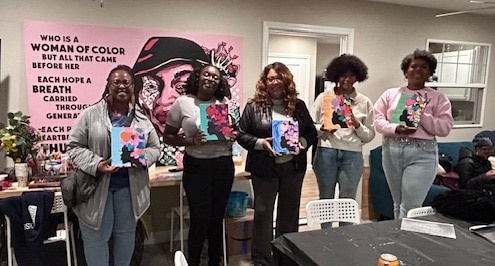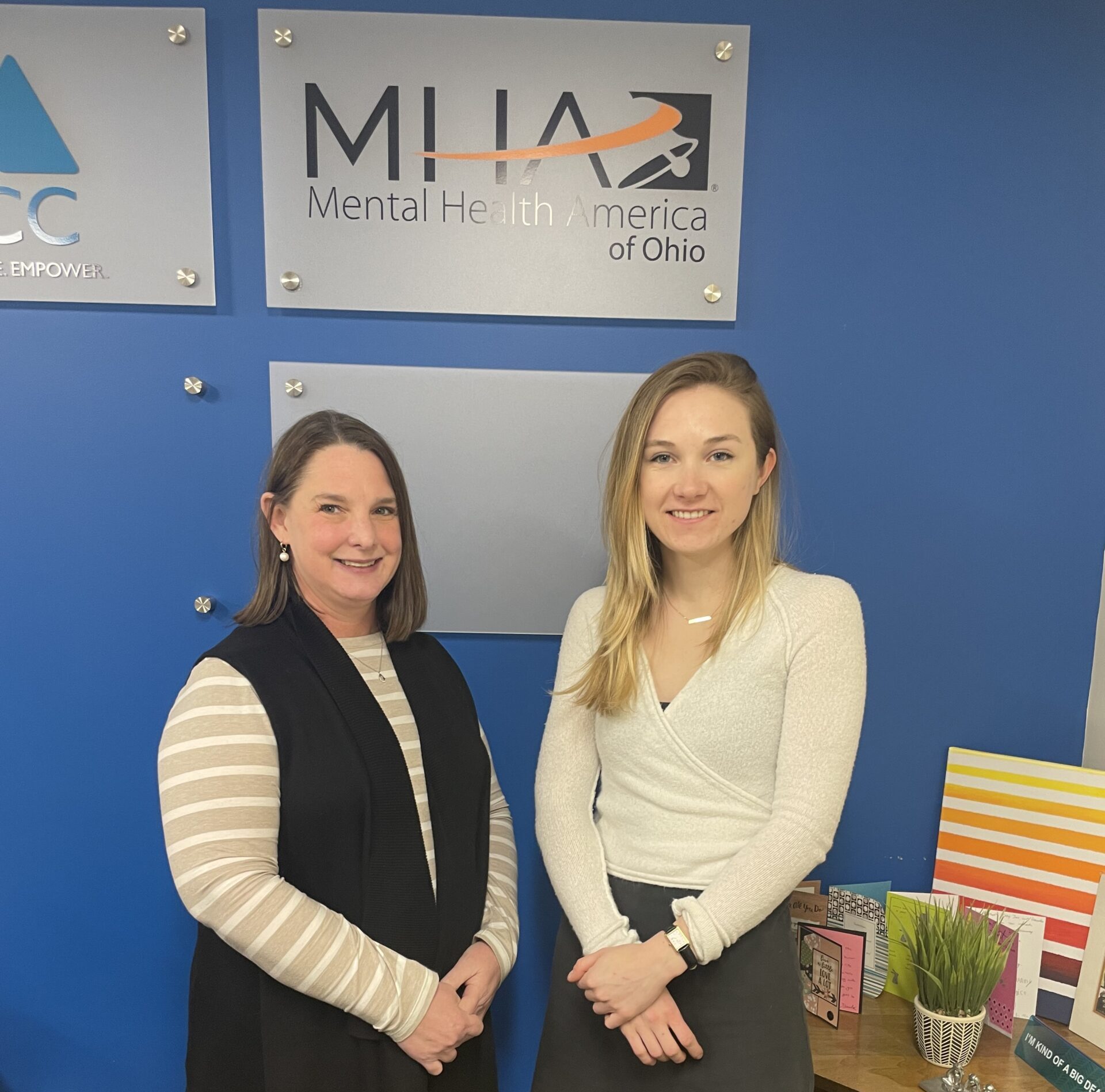July is Minority Mental Health Month – an important time to honor the stories, achievements and continued work to end the stigma of mental illness for people of all backgrounds. Hanna Balla, Director of Customer Experience for NiSource, has been serving on the MHAOhio Board of Trustees since 2019, and she is ready to tell her story.
Hanna grew up in New York and is the first-born child of Korean immigrants. Her parents raised her with strong values, which have led to her success. Hanna loves her family and her heritage deeply, but like all families, she says, they had their own hardship.
“I don’t think we knew it,” she says. “Or if we did, we didn’t admit to it for a long time.”
About five years ago, Hanna’s sister called her to tell her she was quitting her job. Hanna initially thought it was admirable and was excited for her sister to explore new opportunities. But things quickly changed after that. Her sister began exhibiting unusual behaviors. The life she had worked so hard to build for herself was at risk, and Hanna said it deeply scared her and her family.
“It lasted for a few months,” she says. “I remember sitting in my car outside my gym and bawling my eyes out while on the phone with my dad. We thought we were going to lose my sister. In an effort to keep her close, my mom said she was going to stay with her, and we had no idea what things were going to be like when she got there.”
Hanna’s sister had been treated for ADHD and depression in the past, but this was different. She was admitted into a psychiatric hospital and after several tests, the doctors diagnosed her with bipolar disorder. She was having a manic episode and the extreme emotions brought on by the mental illness caused her to make decisions she wouldn’t normally have made.
With the help of medication and therapy, Hanna’s sister eventually started to improve. She was able to leave the hospital and build a new life for herself. Today, she is thriving. She has a wonderful career and friends and family who support her. But, unfortunately, she lost some people through that experience, as well. Hanna explains that the worst part of the whole experience was that it felt like their tight knit Korean community abandoned their family when they needed them most.
“For any other illness our people would come together,” she said. “But my sister was hurting. She was so sick, and the community just rejected us. It was as if they were saying, ‘How dare you not fit the mold of our community.’ There was a point where they were almost expecting an apology for our family’s behavior. It was awful.”
Hanna explains that in her community, as is the case with many immigrant communities, everyone is trying so hard to fit in and to be successful that something like mental illness is unacceptable. It is seen as a weakness or selfishness. But, despite the rejection, her family came together. They dropped everything to help her sister, and now they are closer than ever.
“Bipolar disorder is an illness that pushes people away,” she says. “But my family chose to look it in the face and say, ‘What do we need to do?’ and that’s one of the reasons why my sister is where she is today. Her strength and her power are incredible, and she’s someone in my life that I respect the most.”
Hanna says she hopes that it will be her generation that changes the way people in her community think about mental illness so no one has to go through what her sister went through. Some people in the community have even reached out to express their own experiences with mental illness, but there is still a lot of work to do.
“Nothing should be wrong for you to have to talk to a therapist,” she says. “We should feel like we can have conversations and process things with somebody. Maybe then we can detect things earlier.”
This is the first time Hanna is opening up about this experience and sharing the details of her family’s story. She hopes that other Asian American communities can learn from her experience and begin to create lasting change.
MHAOhio’s Families in Touch support groups offer a place for families to come together and talk about their experiences with loved ones with mental illness. Learn more about our support groups.












